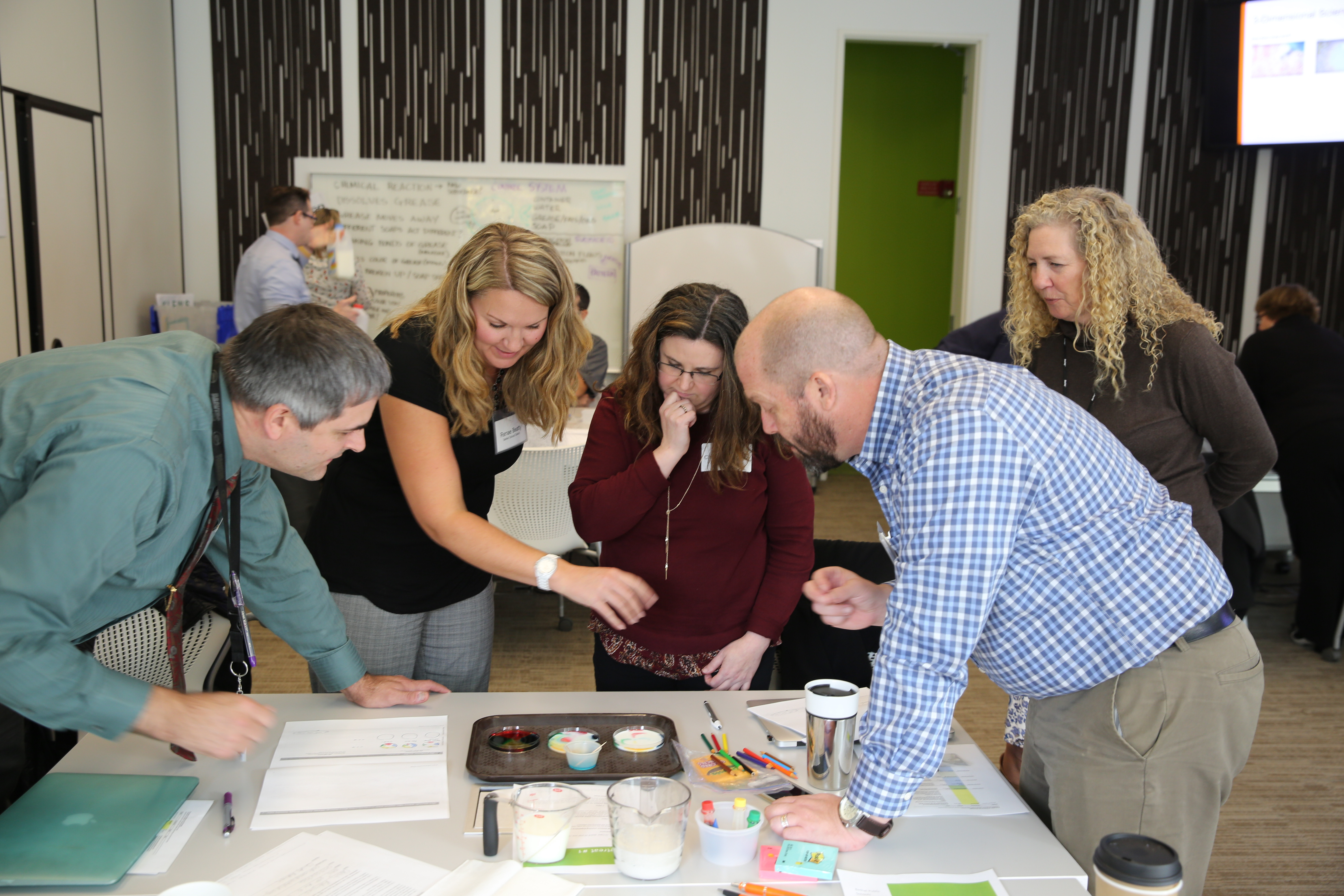Valerie’s vision for our children’s future
Throughout her career, Valerie Logan Hood as served as a visionary and active leader in science education. Her early career included teaching public school in Greenwich, Connecticut and Arcadia, California. While her husband, Leroy Hood, served as a faculty member at Caltech, Valerie managed the Executive Education Program at the Caltech Industrial Relations Center.
When Valerie and Lee moved from Pasadena to Seattle in 1992, they brought with them a passion and commitment for science education. Valerie assumed the role of Education Outreach Manager for the new Department of Molecular Biotechnology at the University of Washington, and in short order had established partnerships with regional school districts:
1995: a partnership funded by the National Science Foundation (NSF) in support of shifting Seattle Public Schools entire K-5 system to include an inquiry-centered science program;
1998: another NSF funded partnership supporting inquiry-centered science programs in the middle schools of five area school districts (Bellevue, Highline, Northshore, Seattle and Shoreline);
1996: a third NSF funded partnership to engage families in understanding and supporting inquiry-centered science education
As Valerie’s roots grew in the Seattle region, her support for education had broadened across the Pacific Northwest serving as: a trustee at Whitman College; a board member of the Pacific Crest Outward Bound; a member of the Friday Harbor Laboratories Development Board; a partner of Seattle’s Social Venture Partners; and a board member of the Seattle Foundation.
When Lee co-founded the Institute for Systems Biology in 2000, he maintained his commitment to education. He and Valerie partnered with the professional educators with whom they had been working and established the Center for Inquiry Science. The educators continued the work launched at UW and broadened the impact across the Puget Sound region. Valerie’s leadership helped to establish ISB commitment to education
- A vision of our children’s future: All students should have opportunity to learn science. It can serve as a gateway to their future.
- A systems approach to education: For all students to learn science, the whole school system – all teachers and administrators – must be engaged. Educators must be treated as professionals and have access to high quality professional development.
- The broader community, scientists, families, informal education organizations, i.e., zoo and aquaria, and business, must be engaged as partners.
- Quality, research-based materials and experiences are the core of this approach: Science education programs should be founded in contemporary and accurate science (knowledge and skills), as well as, current educational research.
In 2012, in appreciation of Valerie’s impact, the group originally known as the Center for Inquiry Science, became ISB’s Logan Center for Education.
While Valerie has stepped down from leading ISB’s education and outreach programs, she continues to inspire the work of the Logan Center staff. Recognizing her leadership, the Institute for Systems Biology continue to celebrate the impact Valerie has had on Puget Sound region educators and students – notably, on an annual basis the ISB hosts the Valerie Logan Luncheon that identifies an educator in the community as recipient of the Valerie Logan Leadership in Science Education Award.



